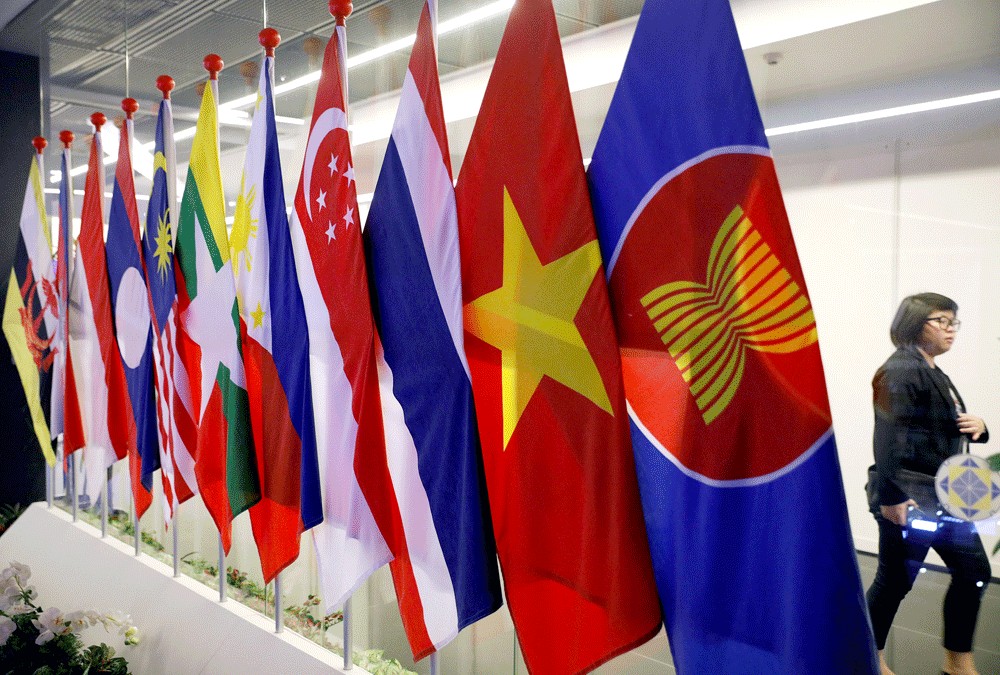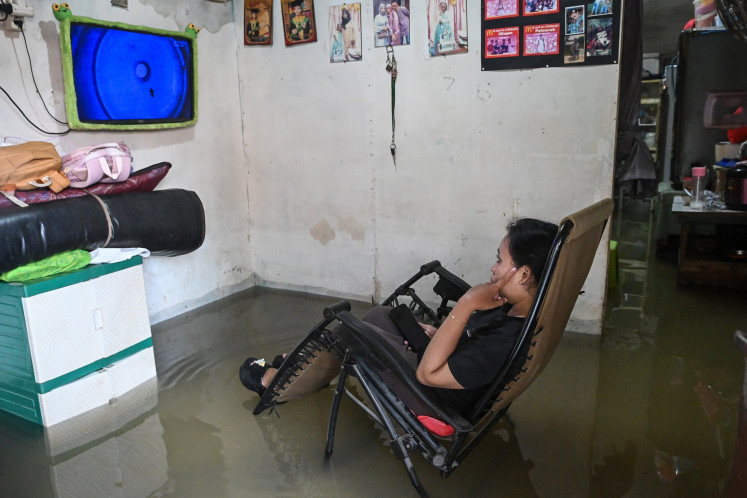Popular Reads
Top Results
Can't find what you're looking for?
View all search resultsPopular Reads
Top Results
Can't find what you're looking for?
View all search results2019: The year of Timor Leste in ASEAN?
Following Cambodia's admission in 1999, Timor Leste is the final missing piece towards an ASEAN that encompasses all of Southeast Asia.
Change text size
Gift Premium Articles
to Anyone
M
uch has happened in Southeast Asia this year. Just to mention a few: a landslide general election in Malaysia oversaw the downfall of the National Front ruling coalition (Barisan Nasional) and the reemergence of Mahathir Mohamad to the top seat of Prime Minister; the Extraordinary Chambers in the Courts of Cambodia held two Khmer Rouge leaders guilty of genocide; Finance Minister Heng Swee Keat of Singapore was announced as the fourth generation leader of the People's Action Party, and is poised to become the next Prime Minister. Unfortunately, Timor Leste's (East Timor) admission to ASEAN is not among that list.
Following Cambodia's admission in 1999, Timor Leste is the final missing piece towards an ASEAN that encompasses all of Southeast Asia.
In late 2017 it was declared that Timor Leste's accession would not take place this year. Unsurprisingly the issue was not mentioned at all during the latest ASEAN Summit held in Singapore mid-November. Timor Leste has been applying for ASEAN membership since 2011. In 2017 they applied twice, and twice they got rejected. The question is, why?
ASEAN's principle of equality emphasizes equal rights and equal responsibility. Consensus is essential in ASEAN's decision-making, as stated in its Charter. Thus effectively each and every member state possesses veto power. If Timor Leste was accepted, they too, would have an equal share of power. By admitting a new member state, no current member would be gaining more power. The exact opposite is true -- the power would be diluted as the veto-bearing member count increases. If you were to give a new member the exact same power you have, you would want to make sure you can trust this state, that they would at least not jeopardize your own ideas. This probably explains why some members would be wary, if not hesitant, of letting Timor Leste in.
The equal responsibility doctrine means all must contribute equal amounts towards ASEAN’s operational costs. Unlike the International Monetary Fund or other institutions where powerful states may invest more to gain more influence or even more votes, ASEAN members are supposed to contribute equally to the Association’s expenses, which was US$2 million per member in the 2016 budget. This, in addition to the demands on the diplomatic staff (reaching over 1,000 meetings to attend annually), puts the newest nation Timor Leste, a tiny country, in a disadvantaged position.
Even now, almost two decades since ASEAN became a ten-member family, the members have varying economic capacity. This has frustrated powerhouses like Singapore, in their advances for further regional economic integration.
With the ASEAN Economic Community Blueprint and proliferation of free trade agreements, the demand on countries' economic capacity would be higher. Timor Leste, currently the smallest economy in Southeast Asia, may have a hard time keeping up with the vibrant and dynamic regional market.
From an internal political security perspective, it is also understandable why some states have reservations to Timor Leste's accession. Despite some strife it has a stable political system, and is named the most democratic in the region by the Economist Intelligence Unit Democracy Index 2017.
Adhering to ASEAN’s non-interference principle, as a new member Timor Leste probably would not raise issues of other states' political or human rights situation. However, Timor Leste's example might be cited by activists of these member states as a narrative pushing for political reform -- putting Timor-Leste on the forefront of ASEAN's quest for democracy. Thus other governments might be concerned about how Timor Leste's democracy would affect their own grip on power.
According to the ASEAN Charter, "The Chairmanship of ASEAN shall rotate annually, based on the alphabetical order of the English names of Member States". Since Singapore currently chairs the ASEAN and will be handing the chairmanship to Thailand next year, technically this means that if Timor Leste is to be admitted in 2019 under Thailand's leadership, by default ASEAN would be led by Timor Leste in 2020.
Right now over half of ASEAN member states are obviously not even confident of Timor Leste being a member so it is unlikely that they would be convinced with Timor Leste being in charge of holding the ASEAN Summit, Coordinating Council and the three Community Councils within two years. Might this mean Timor Leste will have to at least wait until after the chairmanship of Vietnam?
On the other hand, Southeast Asian states forgoing their own turn for chairmanship is not unprecedented -- Myanmar, under pressure from the West, declined to chair ASEAN in 2006. Thus, Malaysia handed leadership over directly to the Philippines. Therefore, it is still possible for Timor Leste to be admitted in the coming year without having to chair ASEAN in 2020
Admittedly, the realist hypotheses above may be overtly pessimistic; constructivism has a more positive outlook.
One does not deliberately block a neighbor's entry into the regional bloc just because this might weaken one's own share of power. It is also understood that ASEAN is meant to be a forum for all of Southeast Asia; thus current members must strive together towards that goal.
On the bright side, four ASEAN member states, including Indonesia, have been backing Timor Leste's bid. Even for the opposing camp, their leader Singapore has been taking active measures to prepare Timor Leste for its ASEAN membership. This was stated in Prime Minister Lee Hsien Loong's speech at an S. Rajaratnam Lecture in 2015.
Once Singapore approves that Timor Leste is fully ready to assimilate into the regional bloc, it is likely that the rest of ASEAN will join the bandwagon to welcome their new fellow member.
Out of four conditions for membership laid out in the ASEAN Charter, Timor Leste has fulfilled three of them; the last one is "ability and willingness to carry out the obligations of Membership", which Timor Leste is making efforts and receiving support for. The fledgling nation has definitely demonstrated its willingness over the decade, so ability is the last and only concern which remains.
Hopefully in the next two years, the final piece of puzzle to a truly Southeast Asian ASEAN would be completed.
***
The writer is a sophomore majoring in politics and public administration and finance at the University of Hong Kong. He was born in Singapore, but calls Cirebon, West Java home and is passionate in Southeast Asian affairs.










